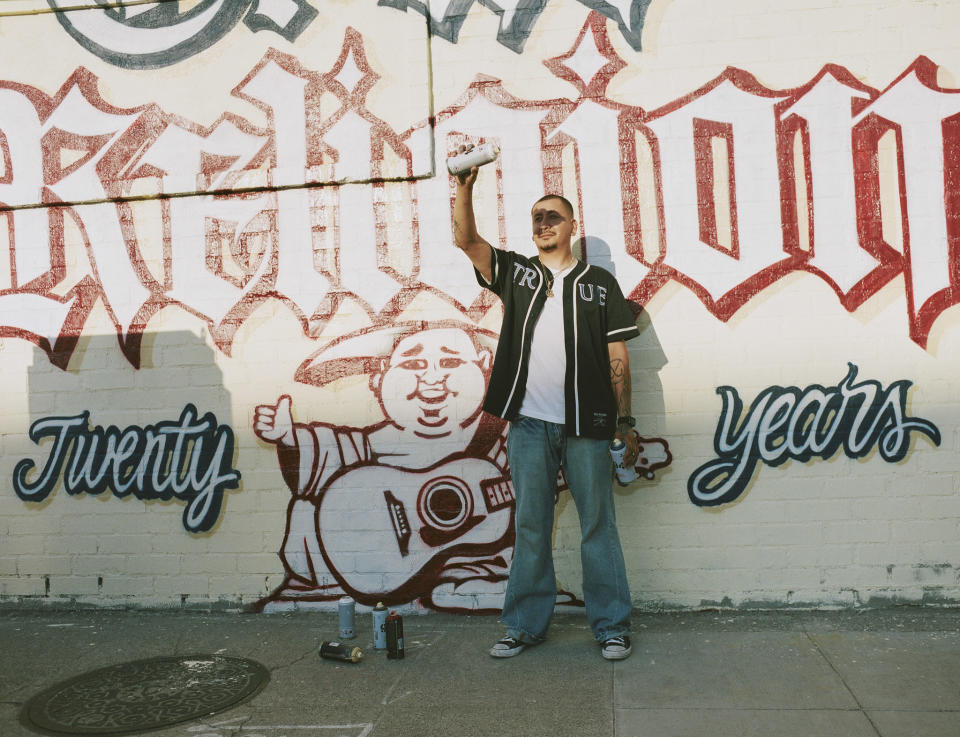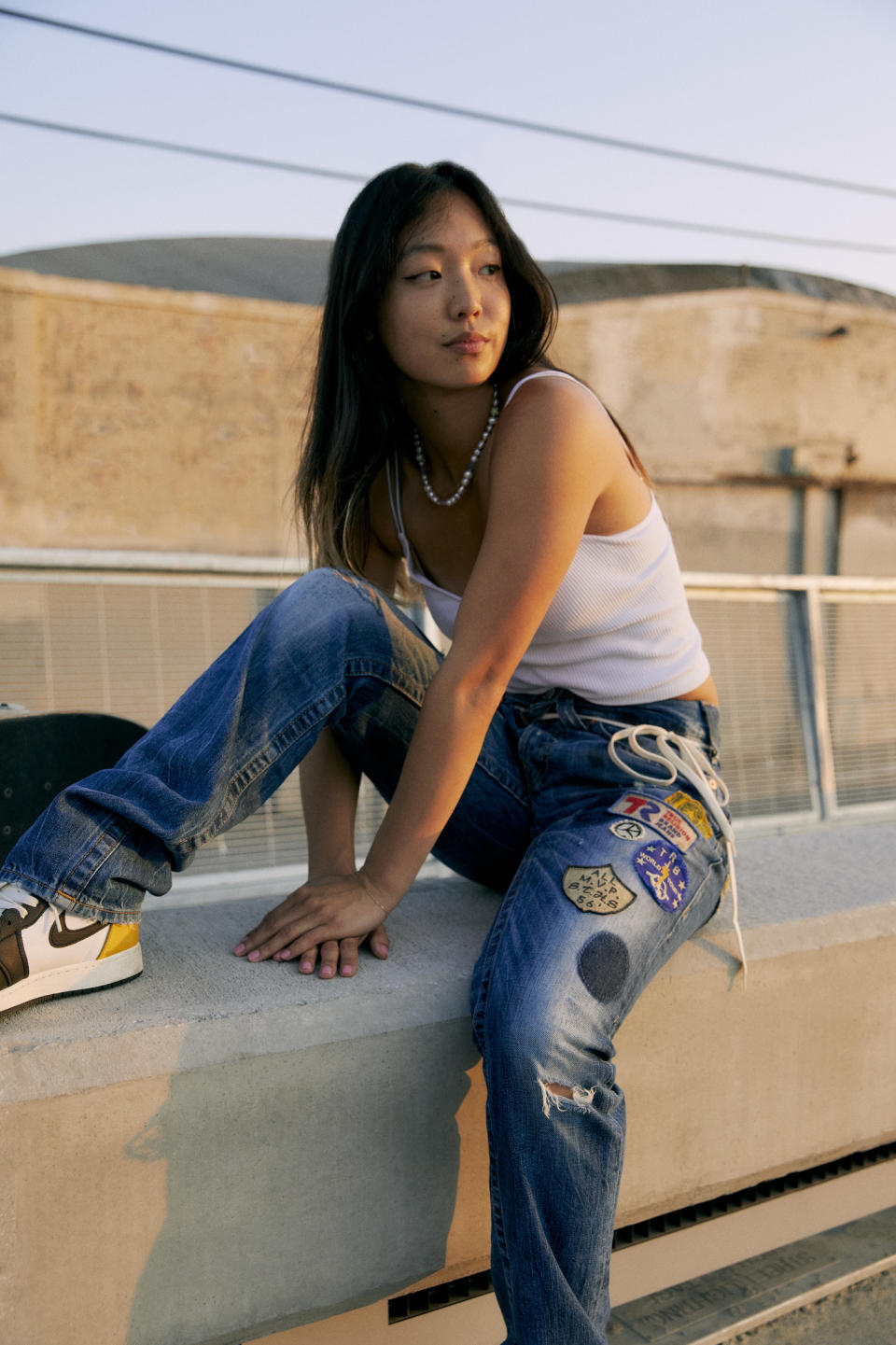True Religion Opens Its Vault as Circularity Takes Priority

True Religion is being proactive in building out a circular product strategy, determined to ensure that deadstock denim doesn’t exist in the marketplace and is only put back in once it is repurposed into something special.
In September, the brand launched the True Religion Vault as part of its circularity push, starting with 1,000 individual pairs of jeans made and worn in the early 2000s. Knowing that many of its products are being sold on the secondhand market, the brand wanted to bring more vintage jeans back under its own umbrella with a modern twist.
More from WWD

Courtesy
“You will be able to find the original Joey jeans with a patch that you hadn’t seen before,” said Zihaad Wells, True Religion creative director. “You can find something that you’ve been looking for that you can now only really buy from us. For True Religion, as one of these brands that have become heavily thrifted for Gen Z, it was important that we showed up in that space.”
Wells said Vault will operate as a marketplace for customized products, and will leverage creator collaborations to sell unique, “new” jeans that are repurposed from old denim.
Under Wells’ tenure as creative director, which began in December 2019, True Religion has developed more collections in line with this mind-set, with the brand teaming with fashion designers like London-based Jaffa Saba, Atlanta-based Elijah Popo and Blu Boy and New York’s Madeline Kraemer. Many of the collections are made from existing product that was reimagined in some cases from factory defects and overstock from prior seasons.

Courtesy
The promotion of a circular concept like the Vault comes as the wider industry shifts to producing more sustainable apparel, whether via materials or an eco-friendlier production process. But according to Wells, “Sustainability has become such an overused term, to the point where it almost doesn’t mean much anymore.”
That’s not to say the denim brand hasn’t been improving its material composition. True Religion has removed leather from its jeans production and is using both pre- and post-consumer waste in its merchandise.
True Religion’s product shift comes in what is Wells’ second go-around with the iconic label. He held the role of vice president of design for the company from 2006 to 2017, before leaving for AG Jeans. Upon making his return, Wells described it as having “walked into a business that had definitely lost track of who it was.”
But Wells saw major opportunities in the company’s youthful audience, which consisted of new buyers as young as 15 years old. With the core customer ranging between 18 and 25, this pairs well with the fact that the brand has had a more accessible price point than it has had in the past.
Wells credits the engagement with these audiences for pushing some of the brand’s most successful recent launches and collaborations, including the return of the Ricky Red Stitch jeans and the collaborations with Supreme and rapper Chief Keef.
“We pay attention to what people are asking for, and where we can meet them,” Wells said. “There was a girl a year ago that posted a pic on Instagram wearing a pair of throwback early 2000s True Religion cargos with a big heavy white stitching. We looked at what people were commenting, and we made sure that we put that back in the line immediately.”


